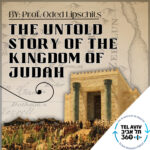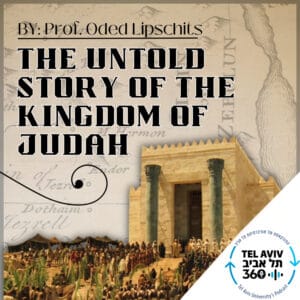X

תל אביב 360 – אוניברסיטת תל אביב: ערוץ הפודקסטים
(D9) The Story about Joash that Was Told, but Not in the Right Place
/

(D9) The Story about Joash that Was Told, but Not in the Right Place
Mar 10, 2024 • 00:32:23
Joash the king of Israel was marked in the eyes of the Judean scribes, because he was the only one of the kings of Israel who captured the king of Judah on the battlefield, who conquered a city in Judah and destroyed parts of the wall of Jerusalem. Despite the…
עדכון זמן הקפצנו אותך לנקודה הקודמת שעצרת
[לקרוא עוד...]
[פחות...]


